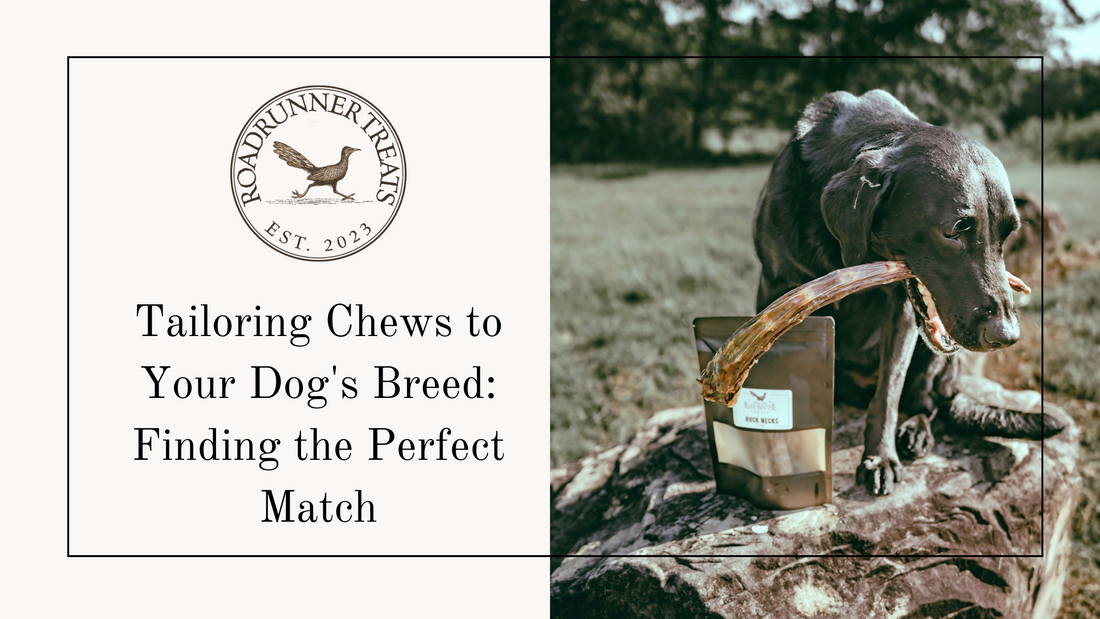
Tailoring Chews to Your Dog's Breed: Finding the Perfect Match
Share
Choosing the right chew for your dog comes down to five main factors: quality, age, chew strength, size, and diet. It might take some trial and error, but with research and observation, you can find the best option for your pup.
Quality:
Ensure your dog’s chew is made from natural, safe ingredients. The less ingredients, the better! This applies to all shapes, sizes, breeds, and ages. Avoid products with harsh chemicals and artificial additives. Locally sourced, all-natural chews are easier to digest and less likely to cause choking. Our products are locally and organically sourced with no extra ingredients - check them out!
Age:
Consider your dog’s age when selecting a chew. Puppies need softer chews for teething, while older dogs benefit from more durable chews that promote dental hygiene. For dogs in between, any dog-specific chew should suffice. But no matter what age, chewing can help strengthen teeth and gums, scrape off plaque, and promote fresher breath.
Chew Strength:
Your dog’s chew strength is crucial. Some small dogs have strong jaws, while some large dogs might need softer chews. The best way to discover your pup’s chew strength is through research and observation. Research your dog’s breed to determine what their typical teeth, mouth, and chew strengths are. Also, watch them before, during, and after they watch to see if they fall under those same general standards. Avoid super-hard chews that could break teeth and too-soft chews that don’t provide enough benefits.
Size:
The size of the chew should match your dog’s mouth. Smaller dogs need smaller chews, while larger dogs can handle bigger ones that take more time to chew.
Diet:
Choose chews that complement your dog’s diet without overfeeding. Some chews are too easy for them to get through, which will have your dog begging for more. However, too many chews and treats can be harmful to your dog’s overall health as some of them can already contain a substantial amount of fat or other nutrients that can be harmful if they are consumed in higher quantities. Also, be mindful of treat fat and nutrient content, especially for smaller dogs whose weight can be easily affected.
Chews vs. Chew Toys:
Chews, like the ones we sell at Roadrunner Treats, provide essential nutrients and can be fully consumed, contributing to their overall diet. Inedible chew toys pose a threat if small pieces break off and your dog ingests them.
However, chew toys are great for play! Use a combination of toys for playtime and edible chews for a nutritious and satisfying snack to chew.
Final Thoughts:
Understanding why dogs need to chew is crucial for their health. For more insights, check out our block post, “Why Should I Encourage My Dog to Chew?” Remember, finding the best chew for your dog requires some research and observation. Try different types and see what works best for you and your pup!
